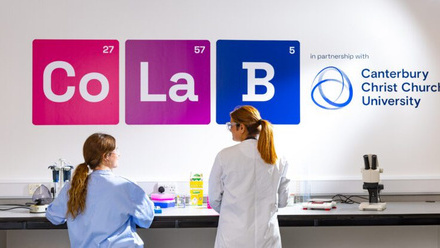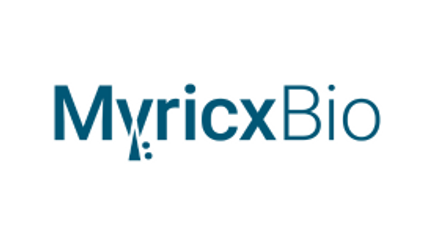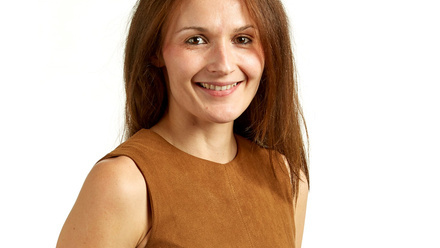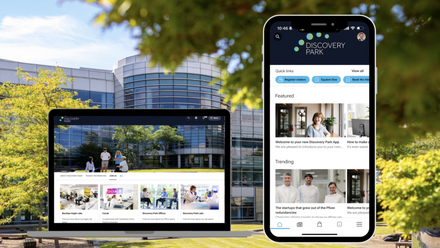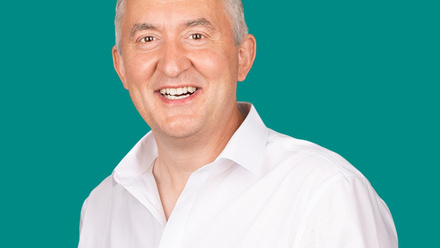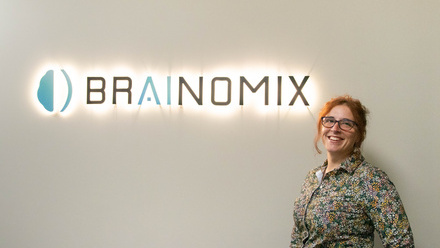Meet Firefinch Software, a life sciences custom software developer

In our latest blog, Isabel Vincent, Market Development Manager at Firefinch Software, shares how the team is driving innovation with custom software, harnessing AI and exploring cutting-edge imaging technologies, helping to shape the future of biotech and MedTech.
Tell us about your company and how you support the life sciences sector
Firefinch Software develops custom software for life science companies. We work across MedTech, biotech, and medical devices and across all sizes of business from pre-university spin-out to large multi-nationals.
What project or achievement is your company particularly proud of?
Something that brings Firefinch staff joy is helping bring new products to market. For a small company, this might be their first ever product - or their only product, so the stakes are really high and everyone is fully geared towards the same goal. Firefinch usually work as an extension to the client's team and we get fully behind the company as they approach market readiness. Nothing brings us more joy than seeing a product that we have helped launch find itself into labs/pharmacies/hospitals around the world. A product that we recently worked on was IMPACT - the first medical device developed by Hart Biologics.
What trends in the life sciences sector are you most excited about or closely tracking?
The Firefinch team have a diverse range of backgrounds so we all get excited by different trends (from bioreactors, to image recognition to the EU AI act). Personally, I come from a mass spectrometry background and am interested in new trends around using mini mass specs in diagnostics. Roche Diagnostics are doing great work at automating pipelines in this space, which I think is really powerful.
Why did you decide to join the BIA, and how do you hope to contribute to the community?
The BIA is our community. Many of our clients are members and the events are a good chance to meet up with clients old and new as well as to learn about the latest trends and technologies. We hope to contribute by being a helpful part of the network. We work with a lot of people and are happy to connect BIA members to other people working in the industry - from hardware partners to reagent manufacturers. We also have a lot of educational content that we run through workshops advertised on the BIA events page - like our medical device software roadshow coming up in September!
How does your work help accelerate innovation in UK life sciences?
A lot of the work we do is internal tooling for MedTech companies to make the best use of their data pipeline. Companies in this space often have a lot of data (e.g. through spatial transcriptomics, multi-omic studies or through published symptom datasets). The limitation is often around inferring meaning from these vast datasets. We help the companies innovate by creating tools for them to derive meaning from their data. This can create lead pipelines, perform in silico experiments - or whatever a scientist can think of really!
If you could give one piece of advice to an emerging life sciences company, what would it be?
Think about your customer. A real problem we see in young start ups is that they often build something because it's cool and they think it must be valuable, but they don't consider how people will use their instrument/software/vector. One of the first things that we do when sitting down with a new company is to develop "user stories" with them. These stories are essentially use cases for how their product or service will be accessed by their customers. We will ask questions like "what will the customer input and what output will they expect?", which is a really good place to start designing a product from. Of course, it's always easier when you have some potential customers that you can ask!
What makes the UK life sciences landscape an exciting place to work?
The spirit of collaboration. I think that the UK is really open and friendly place to be a scientist. The network will always help if you need recommendations for a supplier or piece of tooling.
If you could invite any scientist or entrepreneur to dinner, who would it be and why?
I think I would go for a science communicator rather than a hard core scientist. I watch a lot of Operation Ouch with my kids and I think it would be great to invite Dr Xand and Dr Chris to dinner. They would likely tell us about disgusting bodily functions and suggest fun dinner party experiments!
